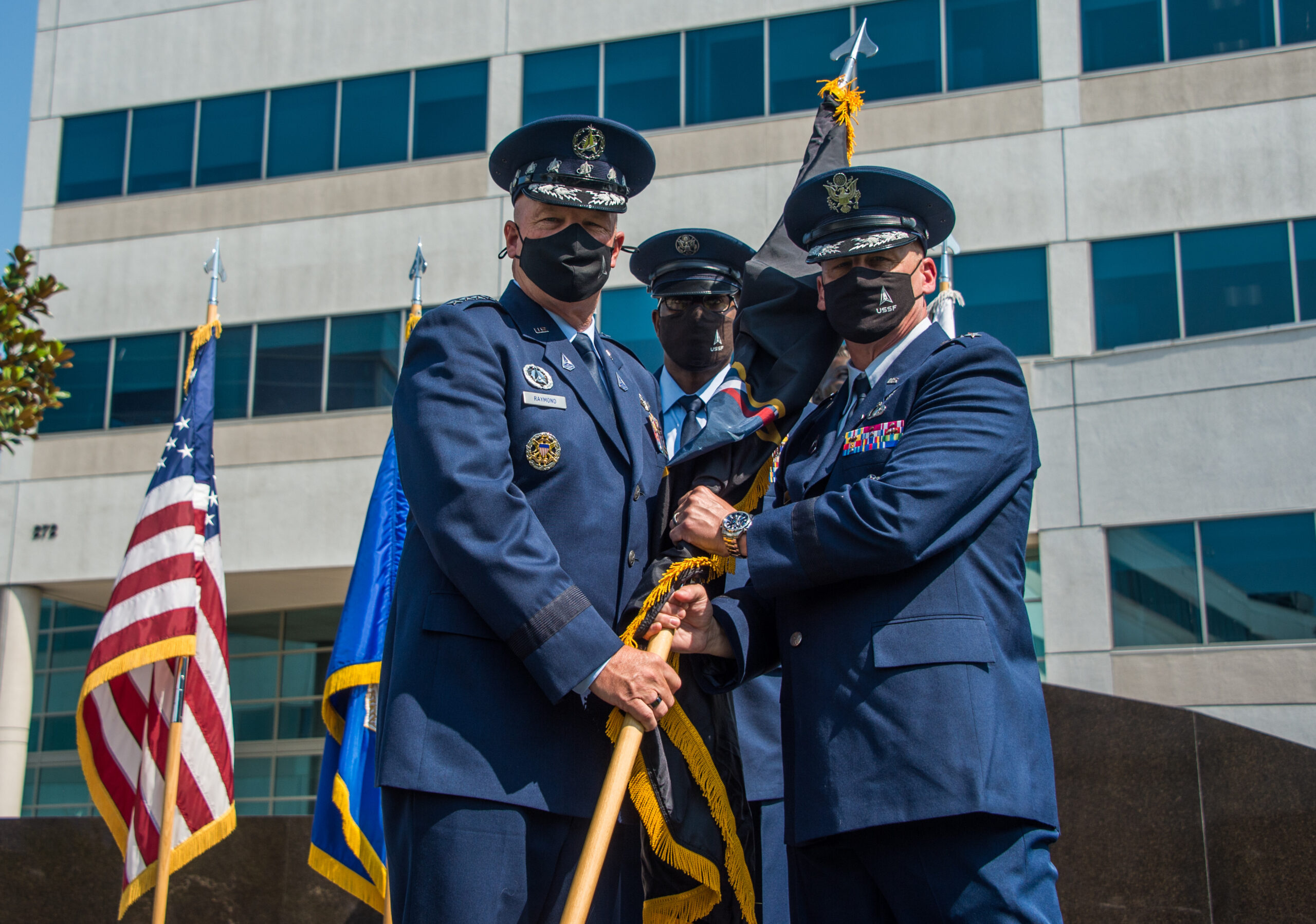End of an era: Space and Missile Systems Center is now Space Systems Command

WASHINGTON — The U.S. Space Force on Aug. 13 officially renamed the Space and Missile Systems Center as the Space Systems Command. The new command will be based at SMC’s campus at Los Angeles Air Force Base in El Segundo, California. It will oversee the development of next-generation technologies, the procurement of satellites and launch services.
At a ceremony on Friday, Space Systems Command’s first commander, Lt. Gen. Michael Guetlein, said SSC will play a central role in the future of the Space Force. “I am honored and humbled to be charged with the responsibility of leading Space Systems Command at this exciting time.” Guetlein said.
“In 10 years, warfighting as we know it will have changed drastically and we must be postured and empowered to keep pace with this change,” he said. “We cannot let this be a nameplate change from SMC to SSC. We must be bold, and we must get after the threat.”
SSC has a $9 billion annual budget and a workforce of about 6,300 military, civilian personnel and contractors.
The standup of SSC is the latest redesignation of the storied Space and Missile Systems Center, first established as the Western Development Division in 1954, making it the oldest space organization in the U.S. military. In 1967 it was renamed the Space and Missiles Systems Organization and in 1992 the Space and Missile Systems Center. In 2001, it was transferred from Air Force Materiel Command to Air Force Space Command, becoming part of the U.S. Space Force at its formation in 2019.
U.S. Space Force Chief of Space Operations Gen. John Raymond presided over the ceremony.
“As we unfurl the Space Systems Command flag and begin a new chapter in space history, let’s reflect on the parallels between past and present,” Raymond said. “The great team here at SMC has already been changing the culture and moving faster, so I know SSC will rise to the challenge and continue this trend.”
“To sustain and build our relative advantage, we must outpace our competitors,” Raymond said. “This is the challenge for the new Space Systems Command. You can’t let our capabilities reach their expiration date. The clock is ticking and you must deliver on time.”
Related
ncG1vNJzZmiroJawprrEsKpnm5%2BifKa6w2amn2WRo3qmvsBmqqmZk5p6orrDZqSiq6OeuaZ50rKqrZ2dqHqksc2tnKtlmah6r7vWZqqpmZOaerTF0q2cpqtdmLyuucCnm2g%3D